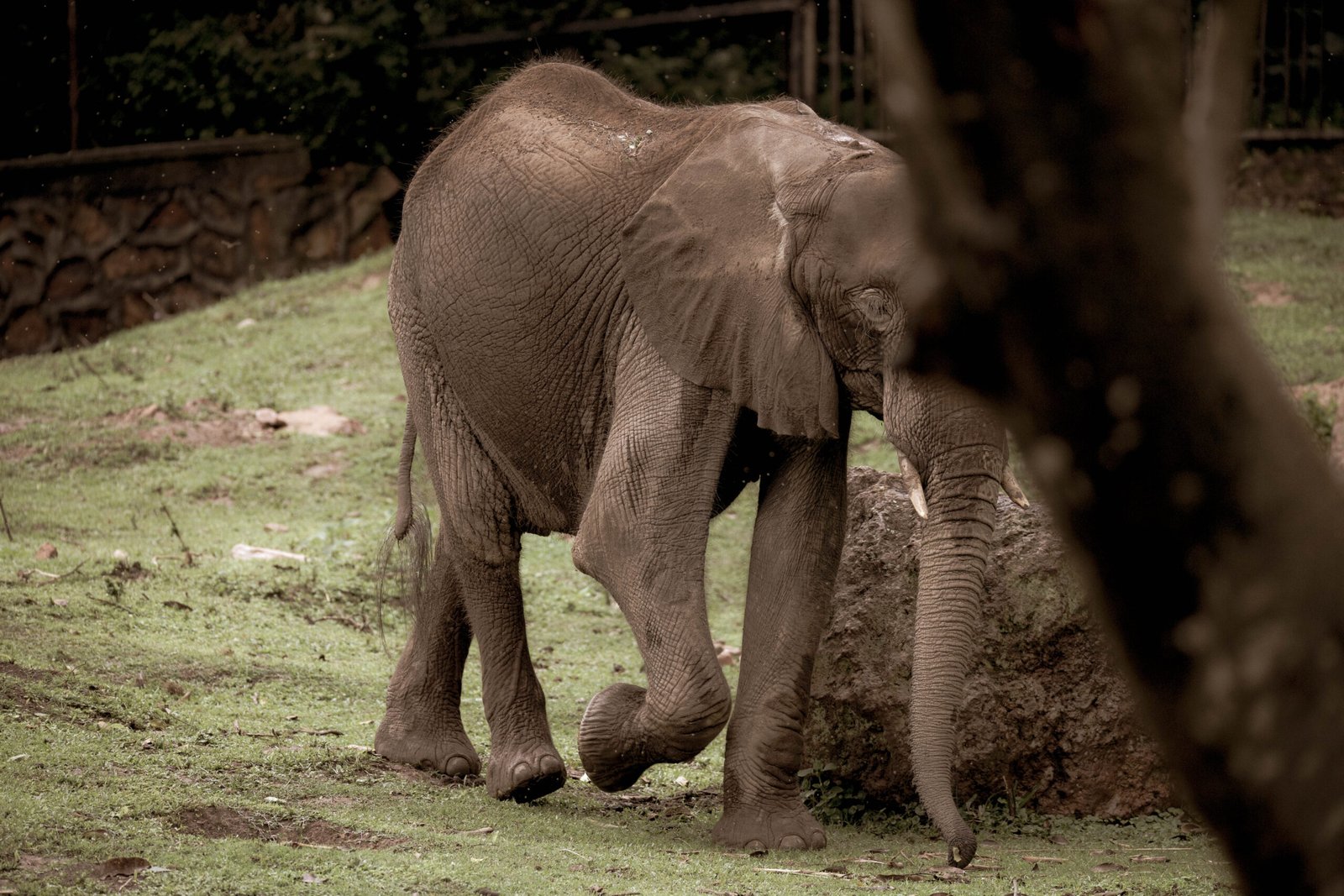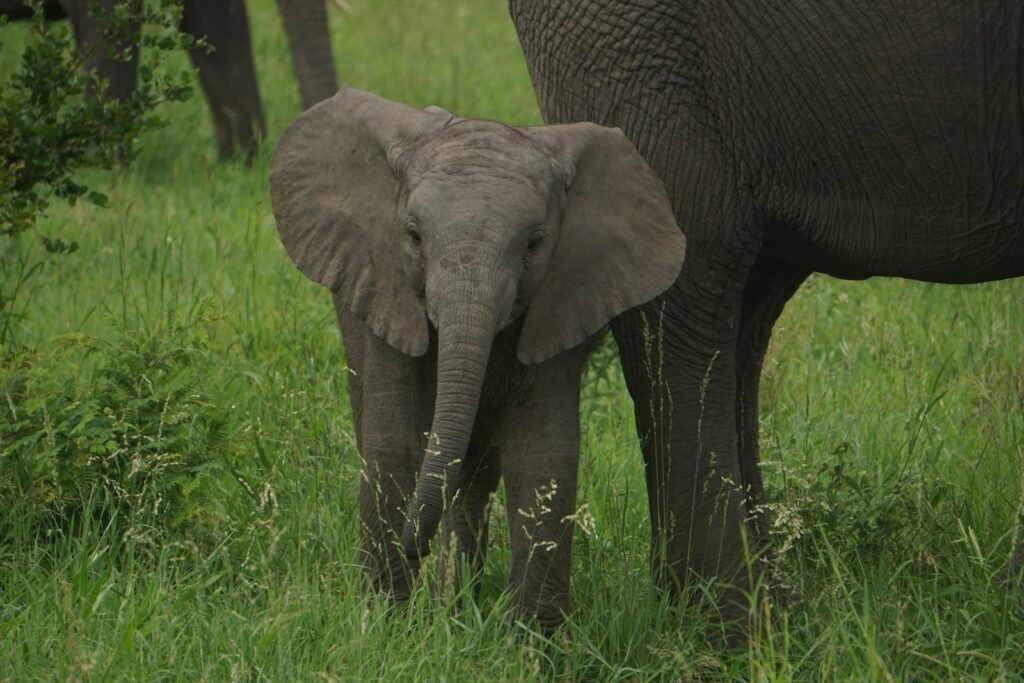Have you ever gazed into the wise, gentle eyes of an elephant and felt an uncanny sense of connection? Imagine, for a moment, that these majestic giants might find us just as adorable as we find them. It sounds whimsical, almost like a page out of a storybook, but science is beginning to unravel the astonishing truth: elephants may actually perceive humans as cute. This idea has sparked wonder among animal lovers and researchers alike, challenging how we see our place in the animal kingdom. Could it be that our tiny size, round faces, and helplessness trigger nurturing instincts in elephants? The story of how these gentle giants relate to us is more fascinating—and more emotional—than you might think.
The Science of Cuteness: Why It Matters
Cuteness isn’t just a human invention; it’s a powerful force woven into the fabric of biology. Scientists call it “baby schema”—a set of features like big eyes, round cheeks, and small noses that many mammals share when young. These traits tug at the heartstrings and ignite instinctive care in adults, ensuring the young get the protection they need. What’s jaw-dropping is that these cute cues work across species. Humans aren’t the only creatures to melt at the sight of a baby. Elephants, with their own complex family bonds, may be hardwired to respond to these signals too—sometimes even when they see us.
Elephants: The Masters of Empathy
Elephants are renowned for their deep social connections and remarkable empathy. They comfort distressed herd members, grieve lost loved ones, and even rescue animals of other species in trouble. Studies have shown that elephants possess some of the largest and most sophisticated brains in the animal world. Their capacity for empathy isn’t just hearsay; it’s been documented through years of observation in the wild and in sanctuaries. This emotional intelligence creates a unique bridge between elephants and humans, making it possible for them to read our emotions—and perhaps find us endearing in the process.
How Elephants Perceive Humans
When elephants encounter humans, their reactions are surprisingly nuanced. Sometimes, they approach with curiosity, extending their trunks as if to say hello. Researchers have recorded elephants gently touching small children or watching over lost tourists in the wild. These behaviors suggest that elephants see us not as threats, but as beings worthy of gentle attention. Some scientists believe our smaller stature and rounder faces compared to adult elephants might trigger their nurturing instincts, much like how we react to puppies or kittens. It’s as if, in their eyes, we’re perpetual babies needing protection.
The Role of Baby Schema in Cross-Species Bonding
The concept of baby schema, first described by ethologist Konrad Lorenz, explains why adults feel compelled to care for the young. It’s not limited to humans—many animals, including elephants, show similar responses to features like big eyes and small bodies. In sanctuaries, elephants have been observed showing extra gentleness toward children or even smaller animals. This suggests that the hardwired response to cuteness isn’t restricted by species. When an elephant looks at a human, especially a child, it may be seeing the universal signals of vulnerability and innocence.
Elephants Remember Faces—and Form Opinions
One of the most extraordinary abilities elephants have is facial recognition. They can remember hundreds of individual faces, both elephant and human, for decades. This memory isn’t just passive; elephants make judgments based on past interactions. If someone has treated them kindly, they’ll approach with trust. If not, they’ll keep their distance. Researchers have found that elephants react more positively and protectively toward people who display open, gentle body language—traits we associate with cuteness and harmlessness. This memory-driven perception shapes their view of us in ways we’re only beginning to understand.
Examples from the Wild: Elephants Helping Humans

Stories abound of elephants coming to the aid of people, sometimes even risking their own safety. In India, there are tales of elephants guiding lost children out of forests or shielding villagers from predators. Park rangers in Africa have recounted elephants forming protective circles around researchers during dangerous encounters. These acts of guardianship are rare but astonishing, suggesting a level of compassion that goes beyond mere instinct. Such behavior hints at a recognition of vulnerability—the same response that cuteness elicits.
The Emotional Complexity of Elephants
Elephants are emotional powerhouses, capable of joy, sorrow, love, and protectiveness. Their social lives are rich, with intricate bonds and rituals that rival those of primates. When they encounter humans, especially the young or frail, their demeanor often shifts to one of caution and tenderness. Some elephants have been seen rocking back and forth or emitting soft rumbles when near small children, similar to how they comfort their own calves. This emotional complexity may be the key to why they sometimes view us with affection and care.
Communication: The Elephant-Human Connection
Communication between elephants and humans goes far beyond words. Elephants use a variety of sounds, gestures, and even seismic signals to convey their feelings. When interacting with humans, their behavior can be strikingly intuitive. For example, elephants may lower their heads, flap their ears gently, or offer their trunks as a sign of friendship. These gestures are often reserved for their own young, suggesting that they interpret our presence through the same emotional lens. It’s a silent language of trust and acceptance.
What Science Still Wants to Know
Despite these remarkable insights, many questions remain. Do elephants truly find us cute, or are their nurturing behaviors a byproduct of their general empathy? Scientists are still working to decode the full extent of elephant emotions and cognition. Ongoing studies in elephant sanctuaries and in the wild are using facial recognition technology and behavioral observation to dig deeper. The hope is that, by understanding this cross-species connection, we can foster even greater respect and protection for elephants everywhere.
Why This Matters for Conservation
Understanding how elephants perceive us goes beyond curiosity—it has real-world consequences for conservation. If elephants see humans as deserving of care or protection, it could explain why some herds coexist peacefully with local communities. Conversely, negative interactions can breed fear and aggression. Recognizing the emotional lives of elephants can help shape better wildlife policies and encourage more humane treatment. When we realize that elephants might find us cute, it’s a powerful reminder that empathy should run both ways.
What If the Feeling Is Mutual?
If elephants think we’re cute, it turns the tables on how we relate to wildlife. It suggests a mutual recognition of vulnerability, a shared language of compassion that transcends species. This idea isn’t just heartwarming—it’s a call to action. In a world where elephants face constant threats from habitat loss and poaching, seeing ourselves through their eyes might be the key to saving them. Are we ready to live up to the trust and affection they offer us?




